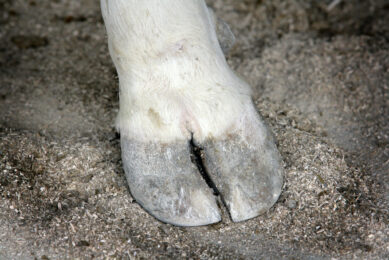How are pig producers around the world affected by Covid-19?

Pig producers all over the world are facing the same problem: virtually the whole world is upside down because of measures to contain Covid-19. How does it affect pig producers in different countries around the globe?
Pig Progress approached several leading pig farmers in various continents and asked about their experiences. The general emerging picture is that although farms can continue their operations, the biggest bottleneck is currently with processors and how to eventually get the pigs to consumers. Those effects might trickle through, hitting pig producers indirectly.
Name: David Herring
Farm: TDM Farms (30,000 sows)
Location: Newton Grove, NC, United States

Which measures have been taken to control Covid-19 in North Carolina?
“In NC, the governor has imposed a 30 day shelter that is set to expire on April 30th. Businesses like restaurants have closed, except take-out and service businesses, like barbers and nail salons. All schools and colleges are closed. Agriculture is deemed essential, so for us on the farms its business as usual. Our dedicated employees have continued to show up and do a great job. We have instituted some measures like checking temps, using face protection and changing shifts of workers to help increase social distance.”
How have these Covid-19 measures affected your farm’s business?
“The pork harvest plants are still operating. However, price for live hogs has dropped considerably and the value of the carcass cutout has fallen dramatically. The loss of food service industry and school closings is really taken its toll and has caused not only live prices to fall but has also caused logistical issues. Belly prices have been hit the hardest because the largest percentage of bellies in the US are sold through food service. Production lines in harvest plants that were designed for food service are very expensive to retool and adapt them for the retail market. Also boxes and packaging supplies have to be reordered or sourced because it is different for retail than food service, this takes time.”
In 2012, Pig Progress visited TDM farms. Here’s what we wrote then
What do you fear the most in this situation?
“Our biggest fear is our harvest plants are disrupted because of worker illness due to Covid-19. We have a record production in the US and we really need all the harvest plants operating to pull the pork through the supply chain. I am also worried that the economies around the world and here in the US cannot open and get back to normal soon. We will see less demand for pork products, so everyone should really be thinking about how much they plan to produce going forward.”
Do you have any recommendations for other farmers around the globe to get through this time?
“My advice to other producers is to follow the health guidelines and pray we certainly hope the whole world can get back to normal as quick as possible.”
Name: Pawapat Pathompotiwat
Farm: Limpaiboon Farm (7,500 sows)
Location: Prachinburi, Thailand
 Which measures have been taken to control Covid-19 in Thailand?
Which measures have been taken to control Covid-19 in Thailand?
“Some parts are locked down and there is a curfew. Most people here are pretty much aware of it but there are still a few that don’t take this situation seriously. We might not be able to do the lockdown for so long for economic reasons.”
How have these Covid-19 measures affected your business?
“The government’s lockdown and curfew limit the movement of products. However, since we are in agribusiness, we can still transport our raw materials. Usually in April we celebrate Thai New Year, which normally takes prices higher – but not so this year. In addition, Thailand is the only country in Southeast Asia which avoided the entry of ASF, so there is a lot of demand for our pigs. However, most borders have been closed, which limits the numbers of pigs exported.”
In 2016, Pig Progress visited Limpaiboon Farm. Here’s what we wrote then
Do you have staffing problems?
“Not at all, other businesses have been laying off people because of a recent adverse economic situation in Thailand. Covid-19 is shutting down a lot of businesses as well, therefore there are many unemployed people.”
Do you have (feed) delivery problems?
“No. The government has limited the movement of people, but food and consumption related businesses are OK.”
Have market price levels changed for e.g. feed or pigs?
“Absolutely. Demand has fallen sharply. Restaurants, hotels, schools are all closed, and so are borders, so we cannot export.”
Are consultants still capable of visiting the farm?
“No. We use Line (a chat programme) and telephone calls.”
Is there demand from slaughterhouses/processors?
“The number of pigs demanded is down by 20% already. I am expecting more if the lockdown will take longer.”
Covid-19 Up-date
What impact is the pandemic having on the global pig sector and how are they dealing with it.
Have you adjusted your production to get through the Covid-19 time, or are you planning to do so?
“Workers in our own slaughterhouse are required to measure their body temperature before entering the workplace and they have to wear masks at all times. If the temperature is higher than 37.5˚C, they are allowed to enter. That applies to all farm buildings as well.”
How long do you expect that you can go on, if this situation will not change?
“Even with only the economic downturn in Thailand, pork as food might have been affected, but we would have been able to manage. With Covid-19, we might have to prepare for downsizing our production.”
What do you fear most in this situation?
“It takes longer than expected. If it keeps going on until the raining season from July onwards, I do not believe Thailand can hold up.”
Do you have any recommendations for other farmers around the globe to get through this time?
“Be prepared that demand will sharply go down and will remain low for quite a while. Tourists as major consumers will not be travelling for some time. Please take care, everyone.”
Name: Joan Sanmartín Suñer
Farm: Albesa Ramadera Farm (3,310 sows)
Location: Lleida, Spain
 Which measures have been taken to control Covid-19 in Spain?
Which measures have been taken to control Covid-19 in Spain?
“Although the Spanish pig production association has sent some guidelines, the most significant actions are ‘company-based’. The Spanish integrations have written guidelines for their producers, feed plant staff and transport personnel. We as a consultant group (OPP, owner of Albesa Ramadera), also made a guideline which focuses mainly on ‘external risk’. Farms with stable staff have little chances of infection inside the farm. We have focused on social proximity outside the farm.”
How have these Covid-19 measures affected your business? Do you have staffing problems or feed delivery problems?
“No, not yet.
Have market price levels changed for e.g. feed or pigs?
“Pig prices are falling in Spain, esspecially the slaughtered piglet price.”
Are consultants still capable of visiting the farm?
“No, we mostly work at a distance.”
Is there demand from slaughterhouses/processors?
“Yes, demand is still there, but prices are dropping. There is a new large slaughter plant that has not yet reached full production.”
Anything else you might think of…
“The largest risk to the industry is at the level of slaughter plants, since large numbers of staff work together in the meat processing line. The bottleneck might be there.”
Have you adjusted your production to get through the Covid-19 time, or are you planning to do so?
“Most large farms have established 2 separate work groups that enter at different times and have rest periods at different times. Staff with flu-like symptoms are discouraged to go to work. We are just waiting to pass the peak of infection and hopefully go back to normal.”
In 2019, Pig Progress visited Albesa Ramadera Farm. Here’s what we wrote then
How long do you expect that you can go on, if this Covid-19 situation will not change?
“We expect to pass this crisis in a month or so, and slowly go back to normal.”
What do you hear from other farms in your surroundings? Do they have similar issues to yours and you describe these?
“We are in constant communication with large farms in Italy, particularly in the most affected area, and staff has not fallen ill yet. In rural areas there seem to be fewer cases.”
What do you fear the most in this situation?
“Even large farms have relatively small groups of staff, so if they get ill, they can be replaced. The largest problem we feel could affect us, is if the infection affects slaughter plants, to the point slaughtering has to be stopped.”
Do you have any recommendations for other farmers around the globe to get through this time?
“Stick to biosecurity protocols to maximum levels. Think of maximum risk levels for farms, like behaviour of staff and their families outside the farm (e.g. supermarkets).”
Read more about pig health in the Pig Progress health tool











